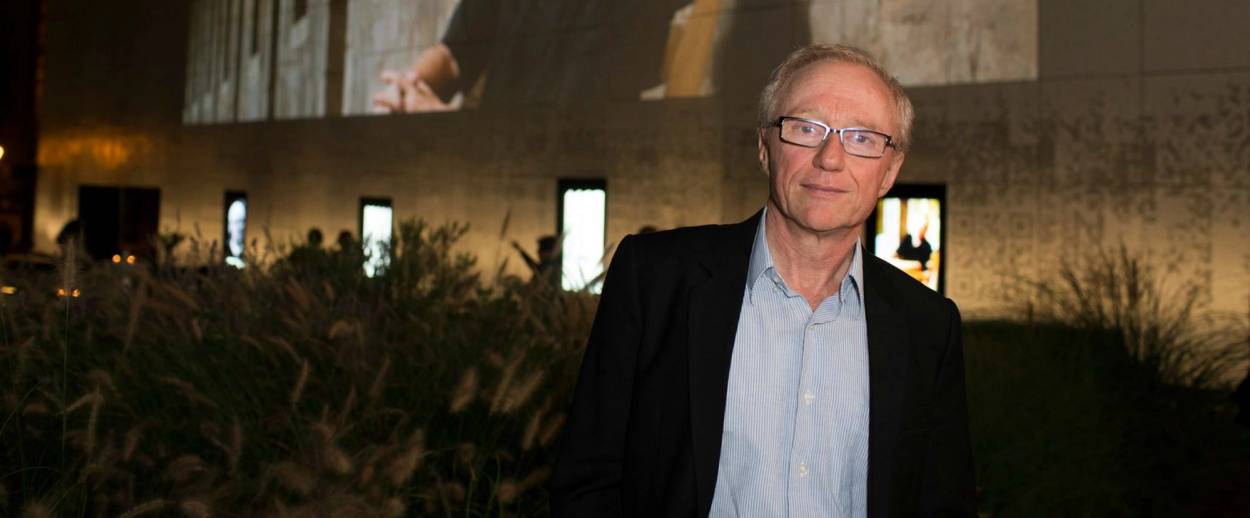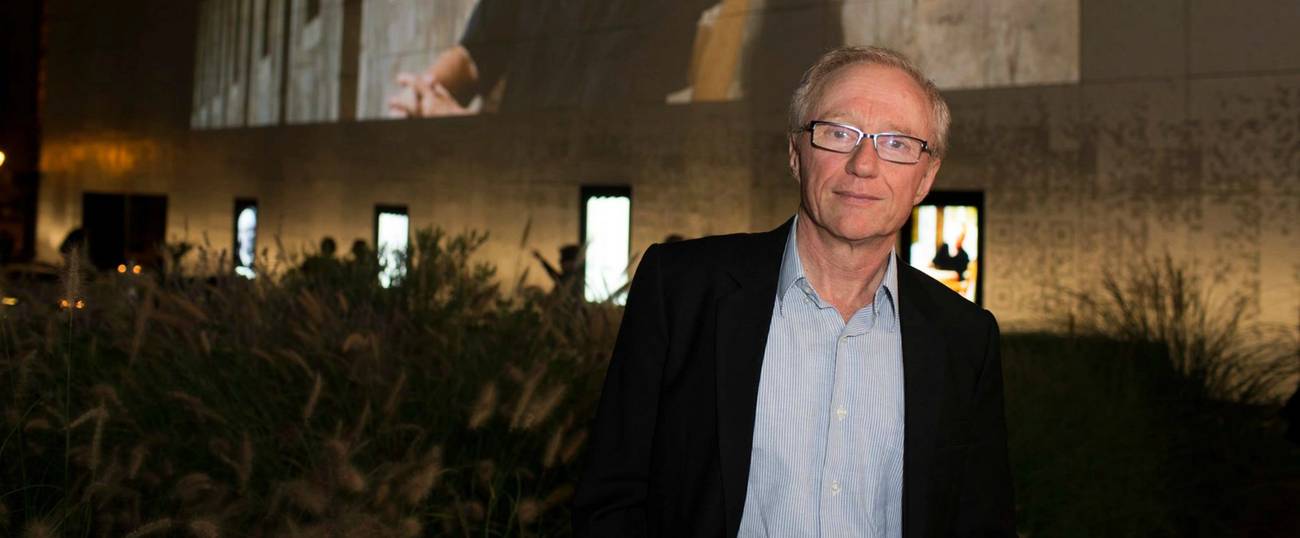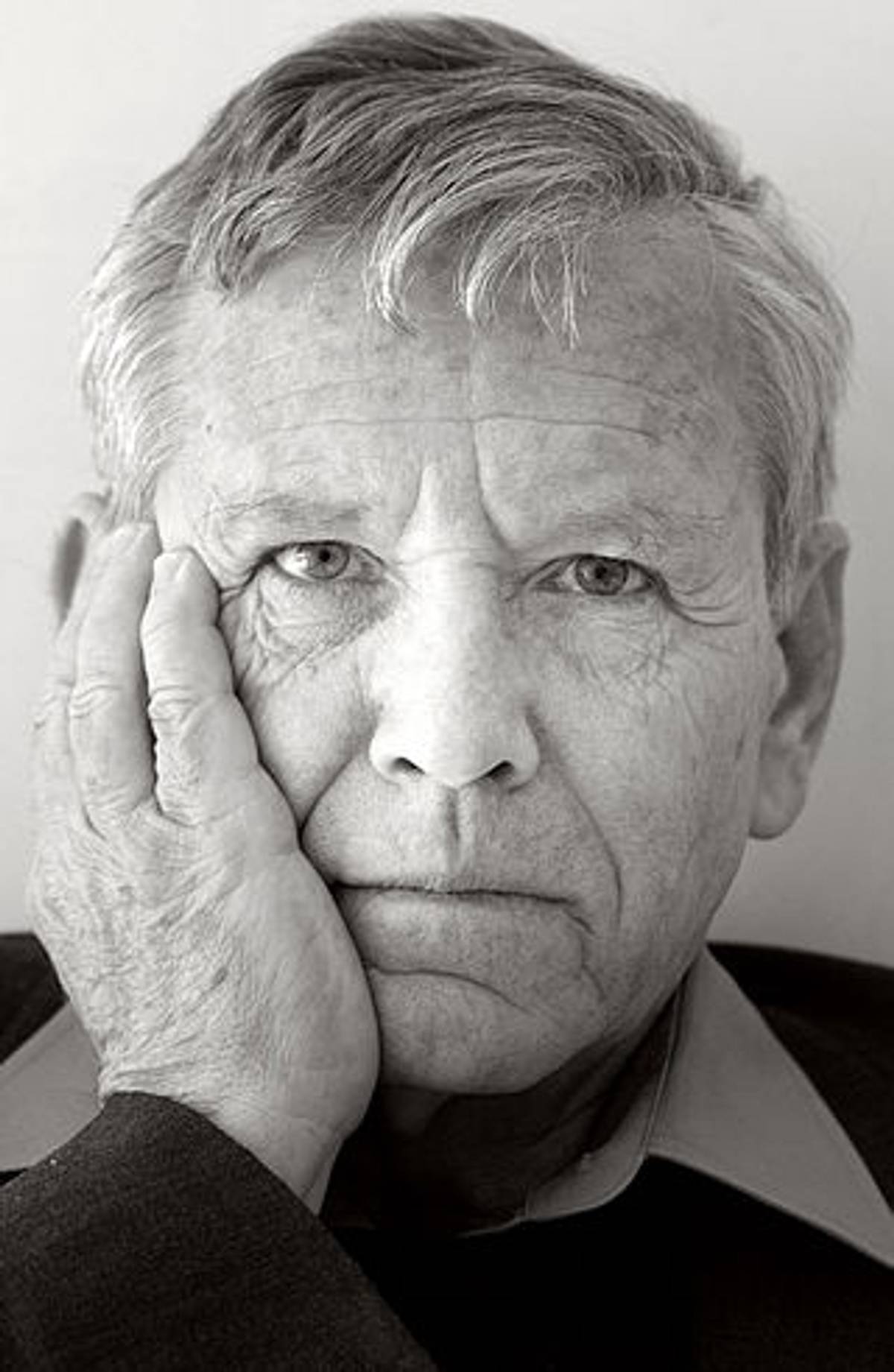David Grossman and Amos Oz Long-Listed for Man Booker International Prize
The Israeli authors were nominated for their novels A Horse Walks Into a Bar and Judas, respectively





Two shining stars of contemporary Israeli fiction, David Grossman and Amos Oz, have been long-listed for the 2017 Man Booker International Prize, a prestigious “celebrates the finest works of translated fiction from around the world.” Grossman’s novel, A Horse Walks Into a Bar, and Oz’s novel, Judas, both had their English-language editions published in the past few months. The prize honors the translators as well as the authors; A Horse Walks Into a Bar was translated by Jessica Cohen and Judas was translated by Nicholas de Lange.
Oz and Grossman are two of thirteen authors honored yesterday as long-listers. The other writers hail from an impressively diverse list of countries: France, Poland, Belgium, Norway, Albania, Iceland, China, Germany, Denmark, and Argentina.
In his review for Tablet, David Mikics points out that Grossman’s novel represents a surprising change of tone for the writer, who has heretofore assumed a sort of responsibility as a left-wing critic of his nation:
David Grossman has made a as the conscience of his nation. That’s a hard role to play for any writer, but especially for one who, like Grossman, has the devilry of imagination in him. The burden is especially heavy in regard to ha-matsav, “the situation”: Israeli’s eternal conflict with the Palestinians. On the eve of the First Intifada, Grossman wrote a famous nonfiction account of Palestinian resentment titled The Yellow Wind, and that bombshell came to overshadow his work as a novelist. Being attuned at every moment to ha-matsav and its corrosive effect on Israeli society, soberly balancing your criticism of your country with an appreciation of its virtues, blasting the right wing while gently chiding the left, reminding everyone not to lose hope for the future … over the long term, such a job description could make you want to throw a TV out the window, Keith Moon-style. In A Horse Walks Into a Bar, Grossman ditches the responsibility shtick and hurls the TV. The book is a monologue by a wickedly misanthropic stand-up comic, and it’s scurrilous, rancid, and very funny indeed.
I was lucky enough to attend an event two weeks ago at the 92nd Street Y during which David Grossman was interviewed by Nicole Krauss (one of my personal favorite Jewish American writers, who has her own much-awaited novel coming out later this year). Grossman spoke about being inspired by Sholem Aleichem and about his own stint as a radio personality; his stage shtick amused the audience, and the novel excerpt was equal parts amusing and sobering. I was captivated both by Grossman’s unassuming, gracious stage presence and by the mix of pathos and humor in just the short excerpt that was read aloud—I knew I needed to read A Horse Walks Into a Bar as soon as possible. I’m now about fifty pages into A Horse Walks Into a Bar, and so far, it does not disappoint. I was also fortunate enough to speak to the author for a few moments, and he was just as amiable one-on-one as he was speaking to a large lecture hall.
Mikics’s characterization of Grossman as “the conscience of his nation” could also be applied to Oz, who, like Grossman, is an outspoken leftist and critic of Israeli government policy. As Gal Beckerman writes in The New York Times Book Review, Oz is an “avatar of an old-school liberal Zionism that many in Israel now deride as too dreamy and idealistic. To him, being out of step with his times—ahead, he would say—is precisely what leads to accusations of betraying his people.” The subject of betrayal is at the forefront of Judas, which is set in 1959 Jerusalem and tells the story of a biblical scholar, Shmuel Ash. As Ash studies the history of Jesus and Judas, he works as a caretaker in the home of an older man and finds himself engaged with stories of mid-century Israel’s nation-building and intellectual debate over different schools of Zionist thought. Biblical history and Zionist history inform and challenge each other for the young scholar. The novel has received much acclaim as well, and Tablet’s Adam Kirsch told Beckerman that it was it “provocative.”
The shortlist, of six books, will be announced in April, and the winner will be honored on June 14 at a formal dinner in London.
Miranda Cooper is an editorial intern at Tablet. Follow her on Twitter here.